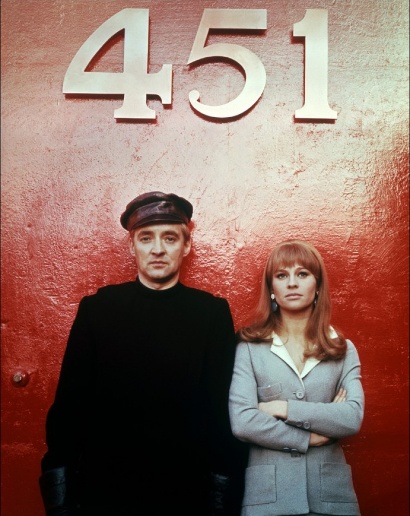ICA Cinematheque: Fahrenheit 451
2 Jun 2015
A significant departure from his earlier work, François Truffaut’s Fahrenheit 451 has influenced generations of filmmakers with its stark exploration of society, media, and culture.
Truffaut’s only English-language film, shot in Pinewood Studios and amid the 1960s modernist housing of South London, his adaptation of Ray Bradbury’s novel warns of the indoctrinating effects of mass visual culture. A totalitarian government forbids all literature as an antisocial form that promotes individualism, tasking a group of ‘firemen’ with a duty to locate and destroy all books.
Unorthodox views risk an individual’s social status, which the general population strive to enhance in the hope of becoming members of interactive television shows that mirror many of today’s popular forms of entertainment. Television is presented as a source of mass consumer culture which naïvely accepts staged ‘news’ segments that keep society both entertained and obedient.
Identity then becomes a commodity divorced from individual expression. It is not simply literature but free thinking that is lost in Truffaut’s vision of an illiterate society. In current times where debates focus upon censorship and free speech, Fahrenheit 451 offers a lingering exploration of contemporary issues.
Fahrenheit 451, dir. Francois Truffaut, UK/US/France 1966, 112 mins
The ICA Cinema is now completely ad-free. Please note the feature will start following a selection of trailers and information relevant to the ICA programme. All films are 18+ unless otherwise stated.



